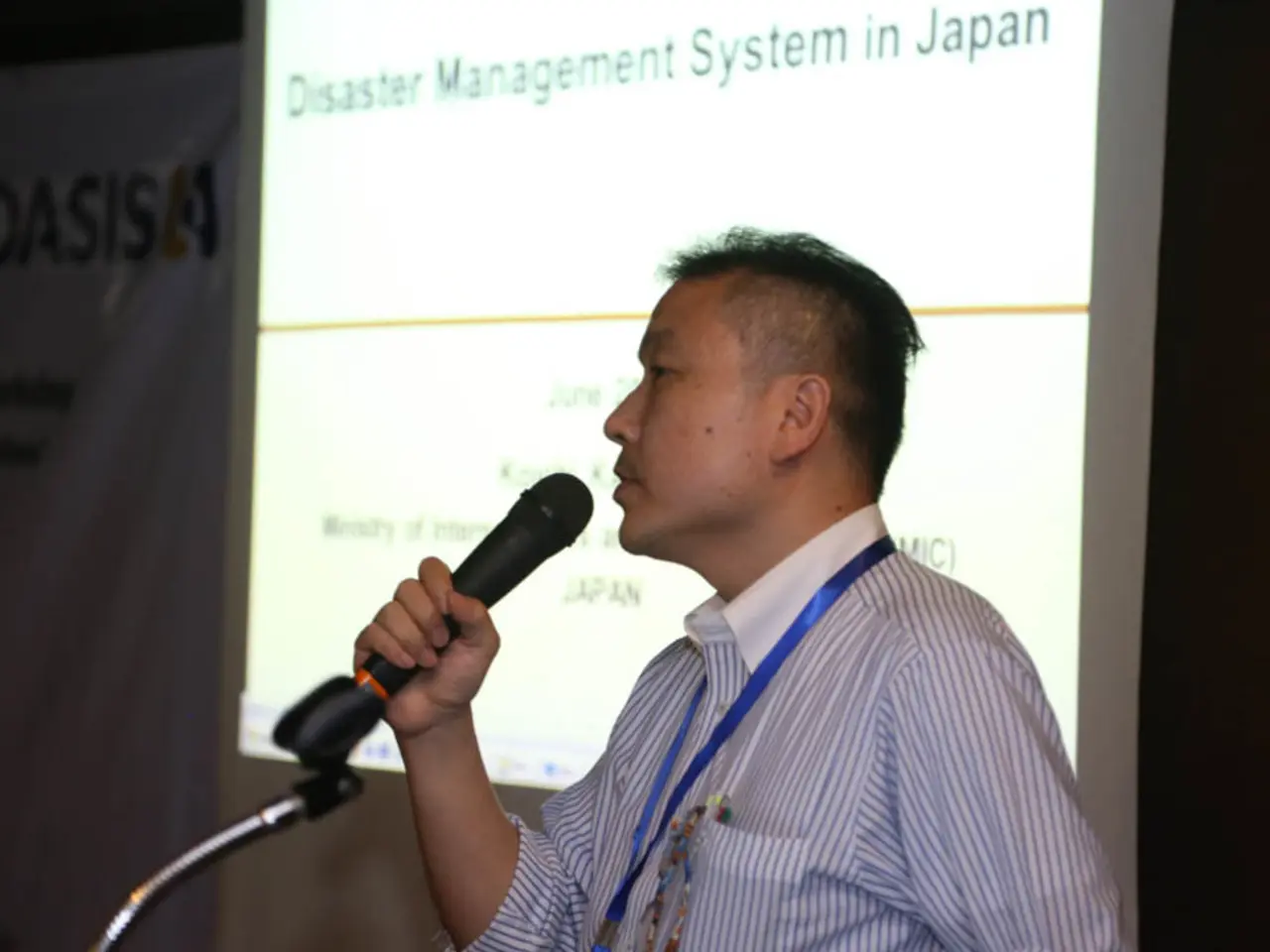Voter defeats lead to Prime Minister Ishiba's resignation in Japan
In a surprising turn of events, Japanese Prime Minister Shigeru Ishiba has announced his resignation, following his ruling coalition's losses in both houses of parliament. The Liberal Democratic Party (LDP), which has governed Japan for almost all of the post-war era, is now facing a period of political uncertainty.
Ishiba, who is 68 years old, had refused to step down following the latest loss in July's upper house vote. However, the mounting pressure from within the party and the growing public discontent seemed to have forced his hand. He will continue his duties until his successor is elected.
The upcoming LDP leadership race is expected to be intense, with potential candidates such as LDP veteran Sanae Takaichi and Shinjiro Koizumi, a possible successor, being mentioned. Takaichi has criticized the Bank of Japan's interest rate hikes, while Koizumi is not expected to bring major changes.
Voters in the upcoming elections are paying special attention to issues such as resisting foreign pressure, protecting national sovereignty, strengthening traditional values, immigration policies, economic challenges like a weak yen and rising prices, and concerns about China’s influence, as promoted by movements like "Japan First" led by Sohei Kamiya. Additionally, political stability is in focus following Ishiba's resignation.
The opposition remains fractured, but the far-right, anti-immigration Sanseito party made significant gains in the July upper house election. The next LDP president may choose to call a snap election to seek a mandate, but this may not automatically translate into becoming prime minister, as the party does not have a majority in either house.
The trade deal with the United States, finalized by Ishiba's last act as premier, includes Japan pledging $550 billion of investments in return for lower tariffs from President Donald Trump. Ishiba had focused on ironing out details of this deal, which is a significant step in Japan's economic strategy.
The poll by Kyodo news agency published on Sunday revealed that nearly 55% of respondents said there was no need to hold an early election. It remains to be seen how this sentiment will influence the LDP's decision-making process in the coming weeks.
In the midst of these developments, Japan faces a critical juncture in its political and economic landscape. The new leader will have to navigate complex issues while rebuilding public trust and ensuring political stability.
Read also:
- Tobacco industry's suggested changes on a legislative modification are disregarded by health journalists
- Trump's Policies: Tariffs, AI, Surveillance, and Possible Martial Law
- Uncovering Political Ad Transparency: A Guide to Investigating opponent's Political Advertisements in the Digital Realm
- Elon Musk praises JD Vance's debate performance against Tim Walz








